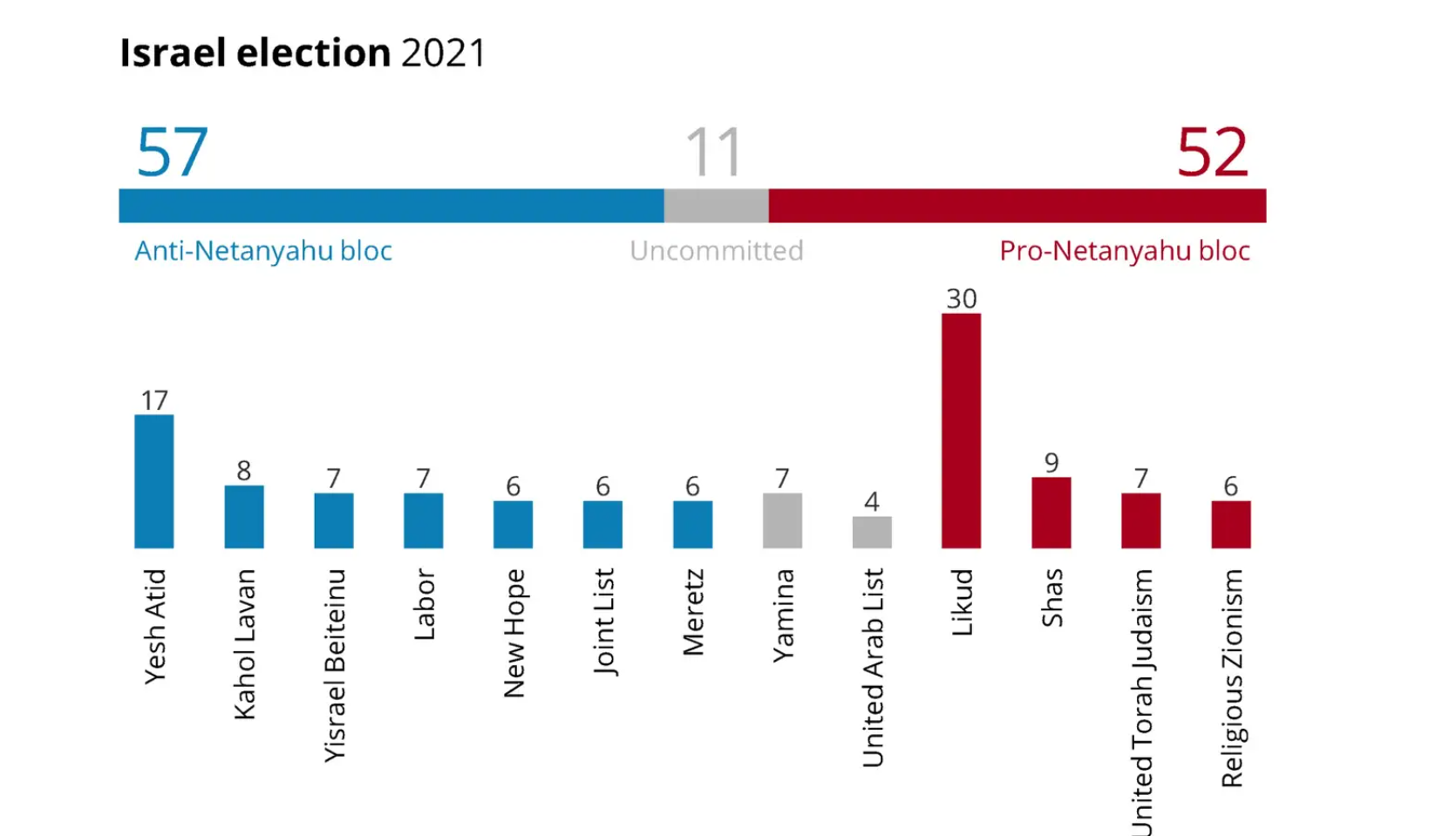
VIDEO
The new government brings the Islamist, settlers, leftists and centrists into a unwieldy common coalition we shall least expect from Israel. It has many risks including leaving potential more strong right wing Israel government to take its place in future in long term unless exceeds expectations.
Like in Turkey, Prime Minister Netanyahu gathered the power of right parties under one umbrella. Thus, gave him a long led ruling period in Israel. After 12 long years, there will be coalition without him. However the diversity among the new coalition government will pose great policy implementation. Its right leaning prime ministers will likely to anger Islamists and left-wing members.
Prime Minister Bennett is likely to pursue pro-settlement in order to strengthen his position among the supporters while Israel left parties and Islamists will likely to oppose. Benett also pursues for confrontational approach to Hamas. In case, or better to say when it happens, it may even split the government among the ideological differences. LGBTQ rights are also vital difference between right and left wing parties. Although Bennett does not favor spending much investment to integrate Israeli Arabs into system, he has to do it. However, legalization of Bedouin outposts also might cause great stress on Islamist members. All these differences are potential triggers to a new election.
The end of new anti-Netanyahu coalition unless new government succeeds might give opening to more robust and united right wing coalition in future. If that happens, it would potentially increase the tension with the West. Netanyahu also faces trial and in case he will be found guilty, it construes end of his political life. Moreover, he has not been supported with majority anymore. Therefore, right parties will consider to plan post-Netanyahu right wing coalition government which would give them free hand to assault military actions in Gazza when required or support more pro-settlement policies ad even annexation of West Bank.
This is a case study for Turkey’s opposition parties. Even Erdogan leaves in coming 2023, the new potential coalition government will likely to meet similar restraints like opposition parties in Israel i.e unified foreign policy, military actions against terrorist groups namely PKK, YPG, national budget, economic recovery programme and many others. Therefore it will be likely to end in short term and lead to a more right wing coalition government in Turkey including post-Erdogan AKP.
It is difficult, if not unfeasible, for Turkey to change its path unless CHP follows more independent and public centered politics.

